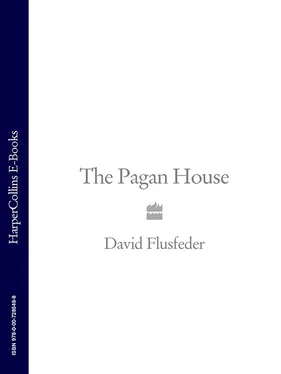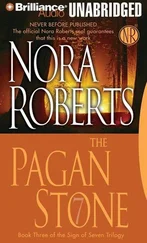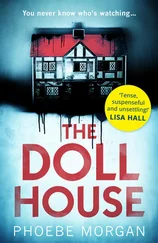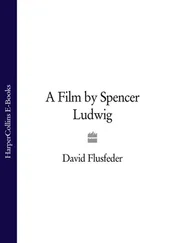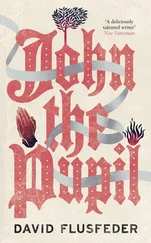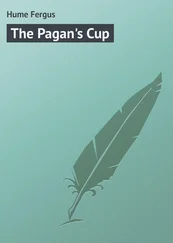1 ...8 9 10 12 13 14 ...18 5
Christ charged his disciples not to publish all the truths he had committed to them, in the injunction, ‘Cast not your pearls before swine’, and on the other hand he forbore to tell them many things which were in his heart, because they were ‘not able to bear them’ . In his conversation with Nicodemus, he signified that there was a class of interior truths, which he called ‘heavenly things’, more incredible and unintelligible to the sensual understanding by far than the doctrine of regeneration that Nicodemus made so great a mystery of; that he classed among earthly things .
Paul refers to heavenly things when he says, ‘We speak wisdom among them that are perfect.’ The Corinthians to whom he was writing, ‘were yet carnal’; he could not speak unto them as unto spiritual; but he stirred up their ambition to become spiritual , that they might know the deep things of God. When he was caught up into paradise, he heard ‘unspeakable words’ that it was ‘not lawful for a man to utter’ . (I Cor. 2:6. II Cor. 12:4. John 16:12, 13. Rev. 11: 15–19)
Bible Communism , John Prindle Stone, 1844
The stones are hard against the plough. Abram Carter has warned him of the damage that stones can do to the blade of the plough. George Pagan has to keep stopping the horse so he can pick the stones away from their path, digging them out half buried from the soil, his futile harvest, breaking his skin, his fingernails, his heart. Blind Jess at least is docile. She stands, tail swishing, the only part of her that shows any vitality.
Jess waits for George to nudge her back into movement. The sunlight is fading, sun going down over the blue hills towards Turkey Street. Here, in this pre-Edenic grove, where wild roses grow and cardinals and goldfinches chirp and cheep, mocking his pretensions as a farmhand, George Pagan pushes the frame of the plough and Jess walks on. George steers, trying to make straight furrows; he has to fight to keep the blade at the correct angle. He had not thought this would be so hard: he had imagined himself into a picture of farming, the light fading on the ploughman’s noble calling, the soil made ready for the vegetables that would sustain two families and whoever joined them for sustenance of spirit and flesh, man and nature united in creation. It is not the picture he had imagined when he had tired of indoor work, city work and therefore fallen work, no matter how virtuous in intent and execution, the composing and printing and distributing of Moral Reform tracts. He had longed to be in a place like this and had never conceived how brutal it would be to submit to the turning of the earth, the passage of the seasons, God’s heartbeat. Here there is no joy, the plough blade turns, scrapes against this dismal earth, the shallow misbegotten furrows; he stops, wipes his forehead with his hand, merely redistributing the sweat and cutting in the sharp grains of earth that have somehow gathered to his skin. In the parlour of the old stone house, the lantern shines more brightly, lighting the scene within. Mary Pagan, George’s wife, sits at the table, her black hair falling in front of her face as Abram Carter instructs her in the ways of Perfectionism. George hopes her path is less rocky than his.
He has been told to plough until called upon to stop and he will. Even though he mistrusts Captain Carter’s manner—delivery obtrudes its substance: he lacks humility, takes too much pride in the sound of the words in his mouth, the orator’s performance, the actor’s pleasures—Mary has confidence in the teaching of Abram Carter, and Mary has an instinct for purity, and truth, that George trusts far better than his own. A hand, his wife’s, reaches out to the window, and George’s heart lifts—here it comes now, the call to finish his labour of the day; he will tether the horse, return the plough to its shed, move back inside to the care and, he hopes, the caresses of his wife. His wife’s arm, illuminated, falls across the window like a clock hand; it is a moment of translucence and hope that, he is forced to admit, would not cut into him nor uplift him quite so directly, so purely, had he not exerted himself so greatly through this ordeal of a day. But the arm does not beckon, the window does not open, he does not hear his wife’s musical voice calling him in from his toil. Instead, the curtain is drawn, pulled between him and the light and the inhabitants of the parlour.
George Pagan trudges on. Blind Jess trudges on. They have no light to steer by. The plough cuts blindly into the soil; and George Pagan devises an analogy. He is not good at devising analogies—he does not possess an associative or synthetic mind: to him things are as they are, form is form, even if dimly he apprehends the possibility of its transformation —but this is as good an analogy as he has ever framed, this the path of the believer in the fallen world finding his way to sinlessness: the way is dark, the day is endless, the horse is blind, the path is stony; his faith sustains him. George Pagan reaches the end of one furrow. Cumbersomely, he turns to begin another.
George, proud in the aftermath of his labour, and a little vain of his analogy, reports it to his companions after he has walked Jess back to her field and scrubbed some of the earth away from his skin. He sips at the hot, sweet tea that Mary has prepared for him.
Abram Carter, the appointed under-teacher of John Prindle Stone’s Perfectionism, slides a finger across the short beard on his chin in the manner he has copied from his master. He nods. ‘Yes,’ he says, ‘this is the teaching that must be lived before it can be learned. The way is hard. But we too are making progress.’
Mary frowns. Something foreign passes across her face. ‘Oh, George,’ she says. ‘You must be tired.’
He is. He hasn’t realized just how tired. If it weren’t for Mary removing his boots he would have fallen into bed dressed for the plough.
And so pass their days, Mrs Pagan and Captain Carter in reading and doctrinal discussion, closeted indoors, Mr Pagan at work in the field.
Sometimes George imagines a house where he is ploughing. It is a mild and acceptable form of heresy, he supposes. Instead of the field of corn to sustain them, he invents a house, a family home, built in the modern manner, where he, and Mary, and little Georgie, and the future ones, the Pagan tribe, as yet unborn, will grow and thrive in undirected sinlessness.
Tentatively he attempts to report his fantasy to Mary. It is night and he is wretched with the cold, with the dirt of the land, with the dull accumulated efforts of his blind-horse days. They are in bed; outside, the land is dark with night, fruitful for the imagining of his house, their house, their future lives free of the doctrinal diligence of Abram Carter. He imagines his wife reading to their children in the parlour, an infinity of playful little Pagan children gathered around her skirts, heeding the soft musical truths of her voice. He imagines the house, its gables, the fires that burn in its grates, the rooms that meet each other across polished wooden corridors; he imagines a love-seat on the porch, a rope-swing suspended from the branches of the sycamore tree. What he fails to imagine, what he is unable to see, is himself in any of these pictures—his family flourishes in the house that he has generously built for them, but he absolutely fails to see himself. Vengefully, he invents a field, a blind, skittish horse, a rusty plough to which he sternly tethers Abram Carter. Returning to the invented house he still fails to find himself inside it.
‘Mary?’ he says. ‘I’ve been imagining a house.’
Читать дальше
